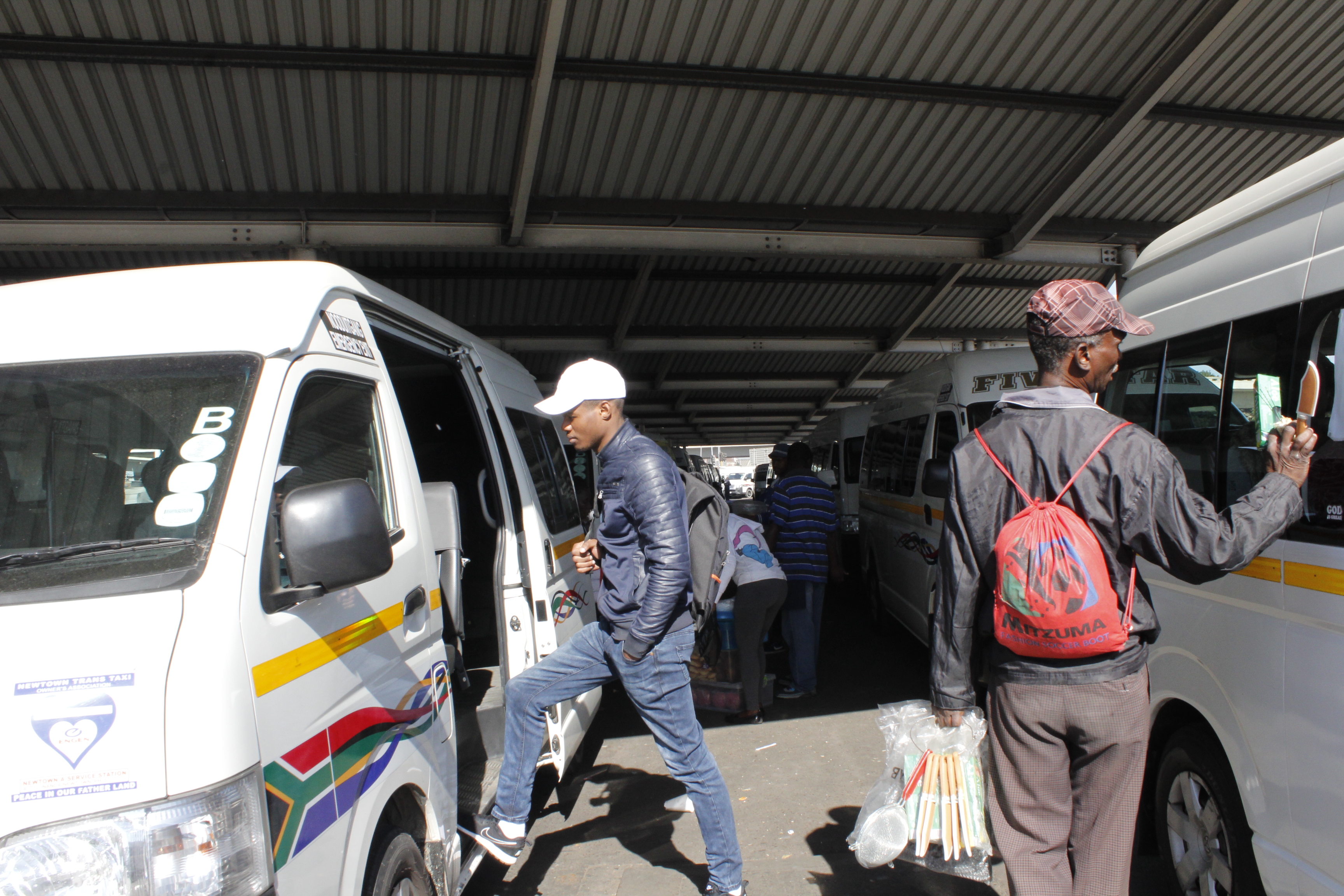Taxi council blames government for violence
Lack of recognition and consultation root cause of most disputes in the industry, says SANTACO

On Wednesday, the South African National Taxi Association Council (SANTACO) told Parliament that the majority of disputes in the industry arise around operating licences and the allocation of routes, and yet the council and other taxi associations are not recognised in the National Land Transport Act, SANTACO president Philip Taaibosch told the Portfolio Committee on Police.
The council also wants the identity of people involved in taxi violence named and it wants section 78 of the Transport Act to be broadened to include the possibility that where a holder of an operating licence is found guilty of any criminal offence, they can lose their operating license.
Taaibosch said SANTACO had not been approached nor consulted by the special task teams assigned to investigate incidents of violence within the taxi industry.
He said SANTACO would like improved communication with the special police task force, the Department of Transport and law enforcement agencies.
Taaibosch said government wants the taxi industry to be organised, yet at the same time the taxi associations are not officially afforded the opportunity to make submissions on routes and operating licences.
“A clear example of such failure to consult was consequently played out in the Africa Mall killings. Operating licences were issued on an existing route that was already in operation. The provincial regulatory entity invited operators to apply for the route but did not first consult with the taxi associations that are already operational on the routes in the direct area … If the associations were consulted, the violence would never have erupted on the route,” he said.
He said some people have been waiting for years for their operating licences, when licences were meant to be issued within six months of application according to the Transport Act.
“In reality the current waiting period that minibus taxi operators are faced with for the renewal or issuing of a new operating licence can be up to five years. An operating licence is only valid for seven years,” said Taaibosch.
“SANTACO would like to be placed in a position where it is able to be proactive in all matters involving the taxi industry rather than being reactive,” said Taaibosch.
Dikeledi Magadzi (ANC), chairperson of the Portfolio Committee on Transport, told GroundUp, it does engage with SANTACO. Recently the committee had summoned them to Parliament. Amending section 78 was on the agenda.
“There is no one who should operate without a licence. Even if it’s Uber or a meter taxi they must have an operating licence; they must have a permit. We asked the municipalities to make sure they have made an analysis of the routes and take note of the total number of the taxis on the critical routes,” she said.
COSATU says aloud what many commuters mutter
Matthew Parks of COSATU told the committee that government had failed the taxi industry. “This is one of the few black dominated industries in South Africa that grew in spite of apartheid. Workers have no choice but to use taxis as there is no alternative to public transport. PRASA has collapsed.
“This sector is governed by anarchy, by lawlessness and it is a danger to the commuters on a daily basis. Taxi drivers are known to be grumpy. They drive on a yellow lane with no speed restriction. Traffic lights are irrelevant. They throw traffic tickets out of the window in front of the officer with no consequences. They drive taxis that are not roadworthy and with no signals,” he said.
Parks also said taxi drivers worked 18 hours a day, seven days a week. They are under severe pressure to meet daily targets. It is an industry that doesn’t pay taxes, but makes billions a year.
He said that in Cape Town there is a close connection between the taxi owners, gangs and syndicates. Many taxi owners were also involved in money laundering and drugs. He said politicians also own taxis and are corrupt.
Support independent journalism
Donate using Payfast

Next: Court gives Bella Vista occupiers a month to submit affidavits
Previous: Cape Town’s homeless and evicted march to Mayor’s office
© 2018 GroundUp.
This article is licensed under a Creative Commons Attribution-NoDerivatives 4.0 International License.
You may republish this article, so long as you credit the authors and GroundUp, and do not change the text. Please include a link back to the original article.
